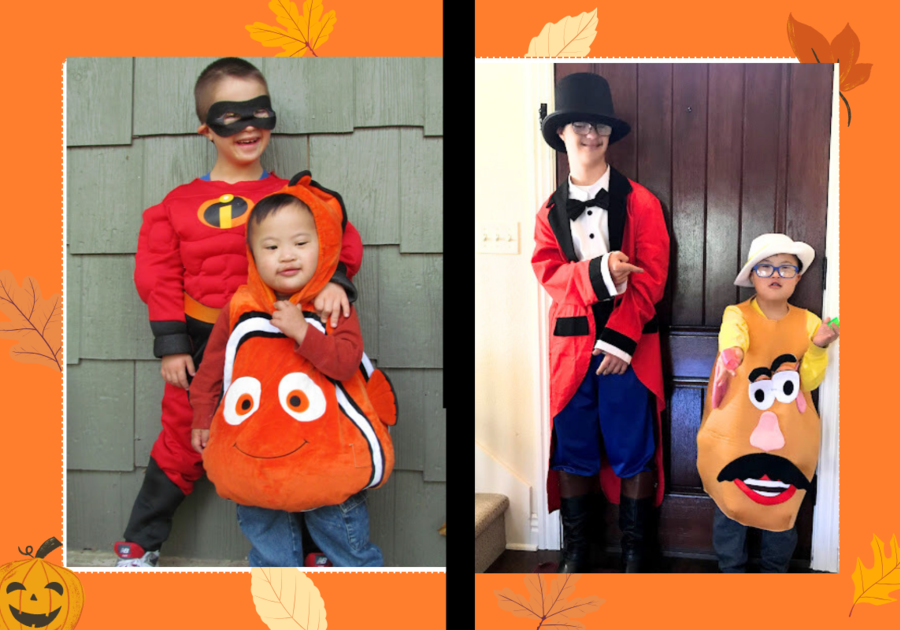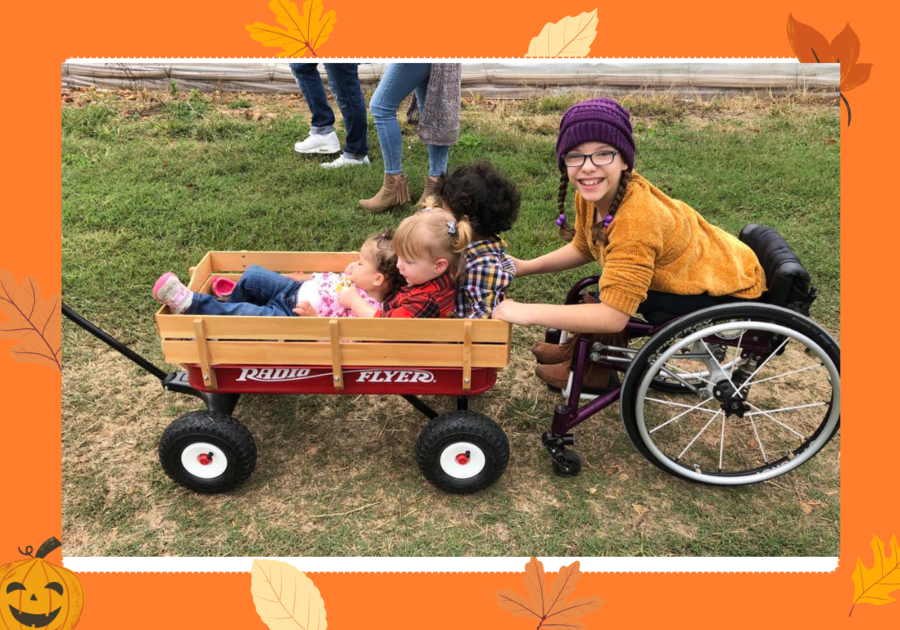Eight Halloween Tips for Children with Special Needs
Halloween will be here before we know it! While this holiday can be a lot of fun, it can also be stressful for some children and families that have special needs or sensory aversions. Here are some tips that help to ensure your child enjoys the holiday and stays safe while doing so:
1. Plan Ahead
Halloween is traditionally known for being all about the unexpected. Take the time to educate your child on what is to come by reading them stories about Halloween traditions, or decorate your home with cobwebs, spiders, and other Halloween décor so that they can become familiar with what they will see. Role-play the process of Trick-or-Treating with your child at home or see if your neighbors are willing to get involved by letting your child practice Trick-or-Treating at their homes.
2. Creating A Visual Schedule
Creating a visual schedule that involves written words or photos can help your child know what to expect. Discuss the schedule regularly leading up to the event and provide information on the sequence of events. If your child knows that they will be outside around crowds, or at a party, this can help them to relieve the anxiety of the unknown.
3. Costume Comfort
Choose costumes that are comfortable and sensory-friendly. Look for soft costumes without tags that won’t itch or scratch them. Make sure that your child can comfortably walk, sit, or bend in the costume. If it is cold where you are, make sure your child is prepared to wear a coat or jacket if needed. It is a great idea to allow your child to practice wearing the costume on several occasions leading up to the night of Halloween or your Halloween event. You can even practice walking around your block with your child in their costume to ensure that there are no restrictions. Bringing a change of clothes that is preferred by your child is a great way to prepare for the night if your child is no longer able to tolerate their costume and would like to change.
- Sensory-friendly costume ideas: Regular clothing in Halloween colors, comfortable Halloween-themed t-shirts, Halloween-themed pajamas
- Incontinence-friendly costume ideas: high-rise leggings, loosely fitting pants to comfortably hang catheters.
- Wheelchair-friendly costume ideas: Train conductor, Pirate and Pirate Ship, Buzz Lightyear and Spaceship, Princess and Royal Carriage
4. Choosing the Right Environment
If necessary, opt for neighborhoods that are quieter and have less foot traffic. Some communities offer special “quiet hours” for children with sensory needs. Plan to Trick-or-Treat during daylight hours or earlier in the evening when it is less crowded and less overwhelming.
5. Play to Their Strengths
Go with a familiar group so that the experience can be more enjoyable and comforting for your child. If your child is sensitive to noise, consider using noise-canceling headphones to reduce the impact of loud sounds and noises. Bring comforting items along with you such as a stuffed animal or fidget toy to help your child stay calm and focused. Provide them with choices as to which Halloween activities they would like to participate in so that they will feel a sense of control.
6. Practice Halloween Etiquette
Teach your child how to say “Trick-Or-Treat” or “Thank You” if they are comfortable with this. This can help them feel prepared to engage in this social experience. If your child is nonverbal, come up with alternative ways for them to engage. Create cards that say “Trick-or-Treat” for your child to hand out upon approaching houses in the neighborhood. Methods such as these will allow for your child to feel involved in all the festivities. Discussing Halloween etiquette is also the perfect time to teach your child about crossing the street safely or when is the appropriate time to eat their Halloween treats.
7. Avoid Halloween Candy Issues
Some children may not be able to eat all Halloween candy due to food allergies or restrictions. Plan ahead by having alternatives on hand such as toys or other snacks that they are able to consume. If you are sure what exactly to offer your child, just ask them! They will be more willing to trade out the candy and treats that they cannot have, for things that they really love.
8. Talk About Emotions and Respect Their Choices
Encourage your child to express and feelings and emotions that they have towards Halloween. Listening to your child and validating any concerns they might have can help to reduce their anxiety. It is important to respect your child’s choices regarding Halloween. If your child chooses they do not want to wear a costume, or participate in Halloween at all, it is important to respect their decisions. Prioritizing their comfort is ultimately what should be kept in mind.
As you celebrate Halloween this year, remember that it is about much more than the costumes, candy, and decorations. The goal is to create a positive and enjoyable Halloween experience that the whole family will enjoy!
Resources:
“How to Prepare Your Child with Special Needs for Halloween”
https://dfwchild.com/how-to-prepare-your-child-with-special-needs-for-halloween/
“How to Create the Ultimate Halloween for Kids with Special Needs”
https://aeroflowurology.com/blog/how-to-create-an-inclusive-halloween-for-special-needs-kids
“Halloween Tips for Kids with Sensory Sensitivities”
https://www.brainbalancecenters.com/blog/halloween-tips-for-special-needs-kids
This educational content is provided by Macaroni KID Fayetteville sponsor Kids Unlimited Learning Academy. In Northwest Arkansas, they have Farmington, Springdale and Fayetteville locations. Kids Unlimited Learning Academy highly trained staff offers services in early childhood development as well as medical care. We provide occupational, physical and speech-language therapy services that are designed to meet the unique goals of each child. Our treatment rooms and innovative therapy equipment are designed to mirror playful activities to the child, the the therapists are actually drawing upon extensive training to provide therapeutic activities aimed and developing greater capabilities and skill levels. Additionally, an infant-toddler, preschool and pre-K curriculum is provided. The on-site services are designed to encourage and support the growth and well-being of each child. Our goal is to build partnerships with parents and caregivers to create meaningful independence in the lives of children.




